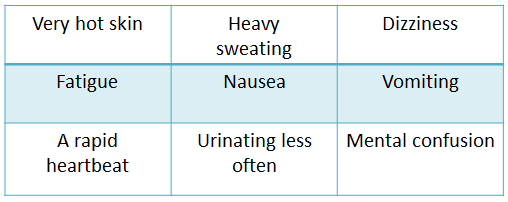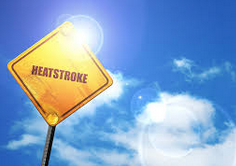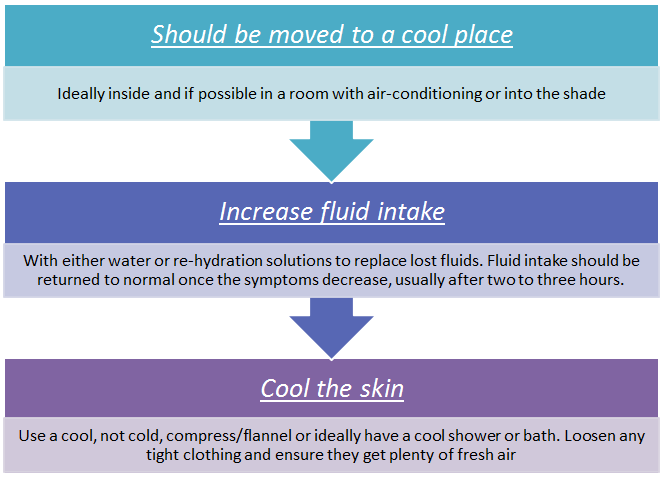These are two related conditions which are brought about by over exposure to the sun and high temperatures. They are slightly different but both can be very serious if not treated quickly and appropriately.
Heat Exhaustion
This conditions occurs when the core body temperature rises above the normal 37°C up to 40°C (104°F). The increased temperature is associated with dehydration and depleted salt levels causing symptoms which include a headache, nausea and fainting. If untreated heat exhaustion can develop into heatstroke.
Symptoms of heat exhaustion:

Heatstroke
 Heatstroke or sunstroke is far more serious and occurs when the body can no longer cool itself and starts to overheat. A persons core temperature rises above 40°C (104°F) and the cells in the body begin to breakdown and stop working properly. If heatstroke is left untreated it can lead to serious complications such as organ failure, brain damage and potentially death.
Heatstroke or sunstroke is far more serious and occurs when the body can no longer cool itself and starts to overheat. A persons core temperature rises above 40°C (104°F) and the cells in the body begin to breakdown and stop working properly. If heatstroke is left untreated it can lead to serious complications such as organ failure, brain damage and potentially death.
Certain group of people are more at risk of developing heatstroke and the complications of dehydration. Anyone in the following group showing signs of heatstroke should be taken to hospital if heatstroke is suspected:
- Children under the age of 2
- The elderly
- People suffering from heart, circulation or kidney problems
- Insulin dependant diabetic patients
Symptoms of heatstroke
The symptoms of heatstroke can develop at different rates, for example those in the at risk groups can develop symptoms over several days in hot weather, whereas symptoms can develop more quickly in people if they are doing physical activity in similar conditions. Symptoms include:
- A high body temperature of 40°C and above
- If the body stops producing sweat it is a sign that it is over heating or dehydrated
- Rapid heartbeat
- Rapid breathing also know as hyperventilation
- Musclecramps
- Mental confusion, lack of co-ordination, communication problems, restlessness, anxiety, hallucinations and loss of consciousness can all be symptoms of heatstroke
There are two types of heatstroke which are:
Classic - this usually affects the elderly, babies and people with long-term medical conditions and often develops during long periods of hot weather
Exertional - this usually affects young active people during strenuous physical activity for prolonged periods in hot conditions, for example, athletes, military personnel and fire-fighters.
Treating Heatstroke and Heat Exhaustion
If someone is exhibiting the signs of heat exhaustion they:

If someone doesn't respond to treatment for heatstroke within 30 minutes then medical assistance should be sought, if a person is at higher risk of developing heatstroke or complications from dehydration they should be taken straight to hospital.
